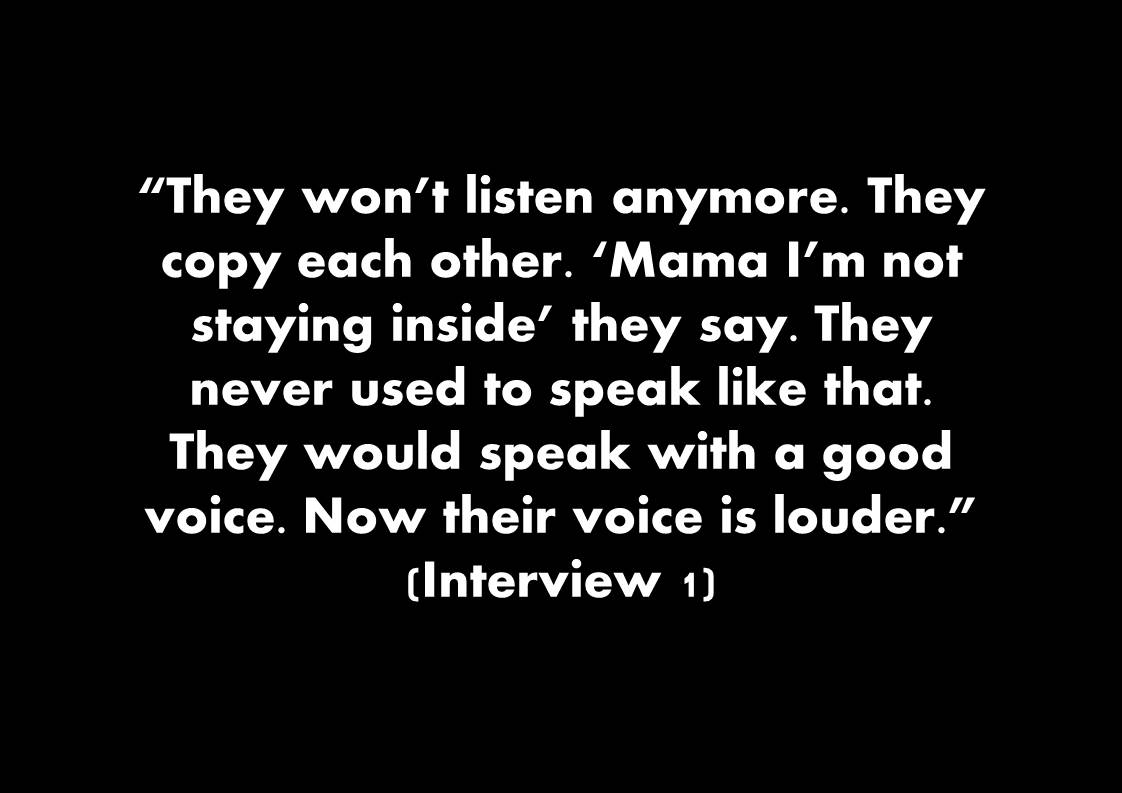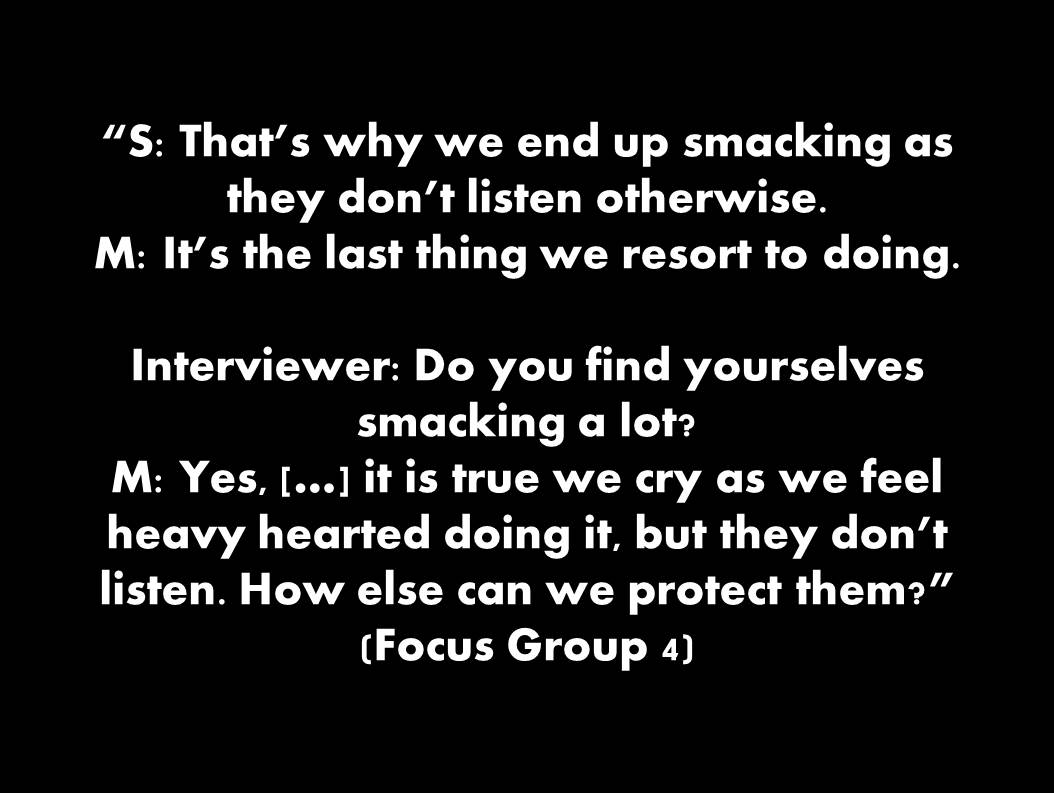Parenting Challenges
Parents and caregivers talked about three types of challenges to parenting in refugee camps and other areas where they were displaced to.
Child-specific Challenges
Parents expressed concern about the increase in inappropriate and aggressive behaviour in their children towards them or others around them and their play had become more violent due to exposure to war.
They were worried that the changes in behaviour would be long lasting and persist into adulthood interfering with their future prospects. Although they discouraged their children from aggressive behaviour and punished them for it, they as adults were supporting other adults returning to Syria to fight back and defend themselves, thus sending mixed messages to their children on the acceptability of violence.

Caregivers were concerned about the number of negative emotions their children were displaying including anger, sadness and frequent crying. They longed for their children to return to how they were before the war began. Children were described as often not communicating their feelings well. They as mothers reported that they could identify subtle changes in their children's behaviour and mood.
"She's not like the other children. You feel she has a heavy load on her shoulders. Yes she laughs and smiles and plays, but there is something inside her deep that is dark. She saw him dead and she cried over him to wake up. She remembers him at night. She cries his name. My insides cry with her. What can I tell her?"
Lacked motivation in children in particular stood out to parents. Children were described by parents and a camp doctor as often experiencing trauma symptoms such as fear of loud noises and bright lights and in older children regressive behaviour such as bed wetting.
"[They children are] unmotivated for anything. They don't seem to have the energy, but I know it's not physical energy, it's they just can't be bothered."
Parents reported that communication between them and their children had changed with their children often not listening to them or talking to them in a more raised or aggressive voice. This was particularly upsetting to them given the emphasis in their culture on children respecting and being obedient to their parents. Parents felt that this was the root of many other difficulties and improving family communication would help many other aspects of their new daily challenges.

Parent-specific Challenges
Parents talked about feelings of guilt and believing they were failing their children. They reported thinking that their children were entrusted by God and that parents would have to answer to God, but that they could not change their situation. Despite being motivated to support their children they felt unable to meet their needs. They were also unhappy about discipline techniques they had adopted since the war began such as hitting and threatening, but to keep their children safe they had no choice; their children needed to listen to them and if they didn’t smacking was the only way to get them to listen. Mothers looked embarrassed when reporting this.
Parents described the enormous challenge of having to cope with their own emotional difficulties such as anger, feeling abandoned and stressed and grieving in some circumstances for the loss of their husbands or other family members. This overwhelmed them, made it difficult for them to hold their families together and cope with the day-to-day challenges displacement presented. Their negative emotions were believed to contribute to them hitting their children.
Parents discussed how their mood changes had contributed to changes in communication with their children including increased shouting and threats made toward them and mixed messages, which in turn, led to their children being less obedient and the cycle continuing.
.jpg)


Parents said they felt frustrated because although at times they had the opportunity to engage in positive parenting behaviours such as introducing routines and telling stories to their children, they felt they couldn’t. This frustrated them further as they knew they should and wanted to maintain their previous parenting techniques.
